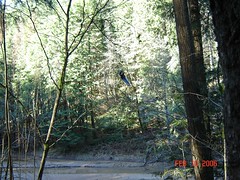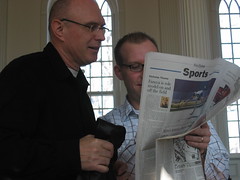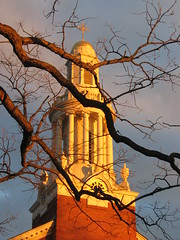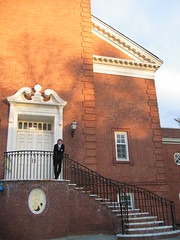Free of Charge
In Free of Charge: Giving and Forgiving in a Culture Striped of Grace, Miroslav Volf argues that God’s gifts come into us as though through a conduit in order to flow out to others. He argues that as we scatter around the earth, we take God’s gifts to the community and the world. He suggests giving more than you expect to receive. This is Christ's way, it’s God’s economy. It doesn’t make rational sense but it’s God’s way of doing things. He is flowing an ever-lasting supply through his people from a source that can never run dry. To keep the gifts God gives me for myself would be the ultimate in selfishness.
At the conversation, Volf said, “If you don’t have a sense that you should give more than you receive then how on earth can you forgive? Forgiveness is a particularly difficult gift to give.” He also said that, “even when I rightly consider the other person an enemy but think of them in God, I can negotiate a healing relationship.” We live in a graceless society that is “obsessively punitive.” In E&E Volf points out that to embrace another is to forgive. There, he borrows from Lewis Smeades when he says, “Embrace is grace, and “grace is gamble, always” (147).
I love that Volf recognizes the hard work and risky business of love and grace. These are hard to give, and give well as he pointed out in his books and during the conversation but I also love how he ties them to the cross in a way that even I can embrace.
At the conversation, Volf said, “If you don’t have a sense that you should give more than you receive then how on earth can you forgive? Forgiveness is a particularly difficult gift to give.” He also said that, “even when I rightly consider the other person an enemy but think of them in God, I can negotiate a healing relationship.” We live in a graceless society that is “obsessively punitive.” In E&E Volf points out that to embrace another is to forgive. There, he borrows from Lewis Smeades when he says, “Embrace is grace, and “grace is gamble, always” (147).
I love that Volf recognizes the hard work and risky business of love and grace. These are hard to give, and give well as he pointed out in his books and during the conversation but I also love how he ties them to the cross in a way that even I can embrace.





